Dr Heather Ohly, Research Fellow in Global Nutrition.
BIZIFED2 is one of many research projects around the world affected by COVID-19. We have suspended our fieldwork activities in Khyber Pakhtunkhwa from March 2020. The safety of our research team, study participants and the wider community is our primary concern. We have developed flexible contingency plans, which will be revised according to advice from the WHO and the Government of Pakistan as the pandemic develops.
We are currently just over halfway through our two-year project and this unexpected pause offers an opportunity to reflect on our progress so far.
We are conducting the first large-scale investigation into the potential of biofortified wheat to reduce zinc and iron deficiencies among adolescent girls and children in Pakistan. The main study in Khyber Pakhtunkhwa is a randomized controlled trial (RCT) conducted in two communities supported by the Abaseen Foundation. This study is designed to test the impact of consuming biofortified wheat, which contains higher concentrations of zinc and iron (two essential micronutrients in the human body) compared to standard varieties of wheat. The findings will demonstrate whether biofortification could be a cost-effective and sustainable strategy for alleviating micronutrient deficiencies in remote and marginalized populations.
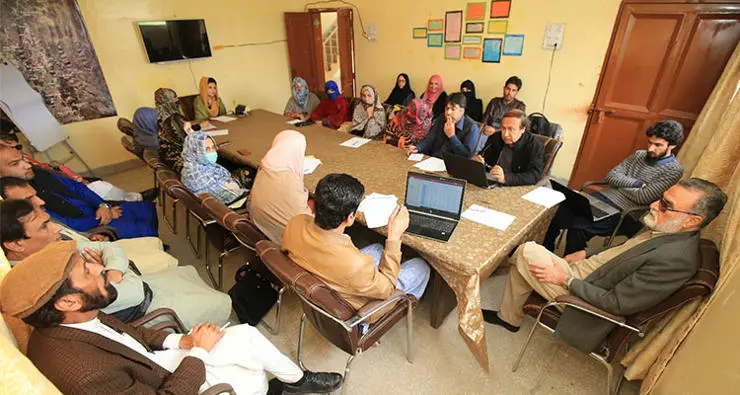
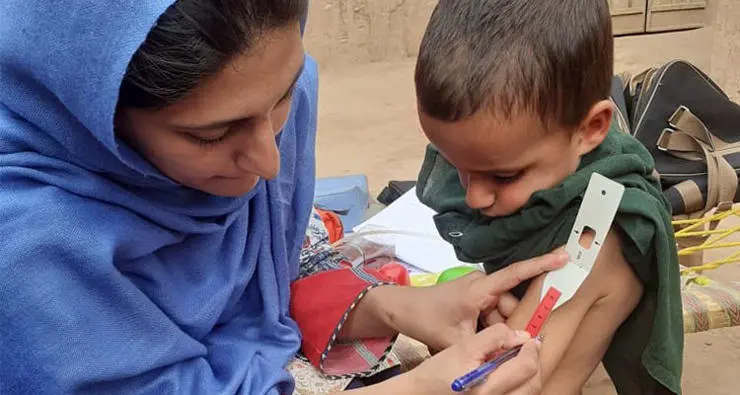
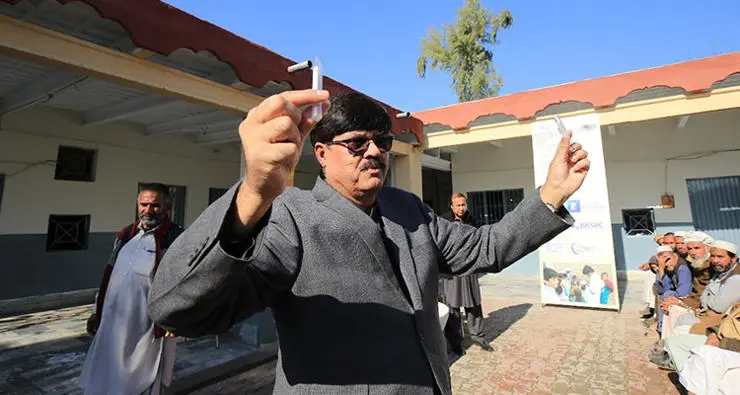
When the COVID-19 restrictions began in late March, we were halfway through the third phase of data collection (out of five in total). The field team exceeded their recruitment target of 500 adolescent and child pairs, so we started the study with 510 pairs from 482 participating households across 34 clusters (17 in each of the two communities).
We anticipated some withdrawals and consequently the number of participating households decreased to 457 in phase 2. Reasons for withdrawal included adolescent girls getting married and moving away to different villages. Adolescent girls are the primary study participants because they are susceptible to zinc and iron deficiencies, and the health consequences of these deficiencies are most severe for women of reproductive age and young children.
Data collection includes dietary assessment (24-hour recall), blood and hair samples from the adolescent girls, as well as anthropometric measurements (height, weight and mid upper arm circumference) and health indicators (such as incidence of diarrhoea) from children aged 2-5 years.
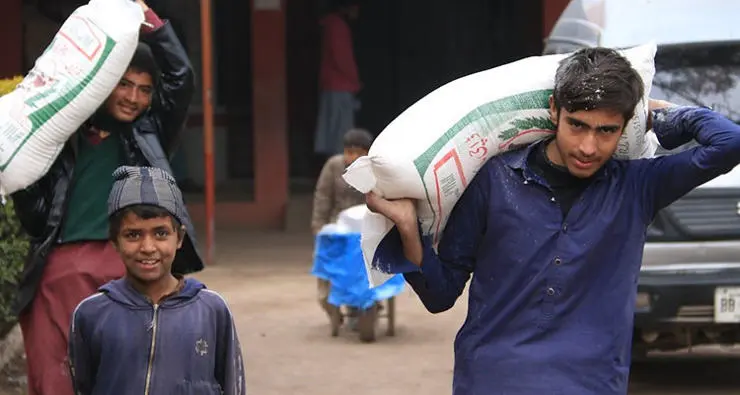
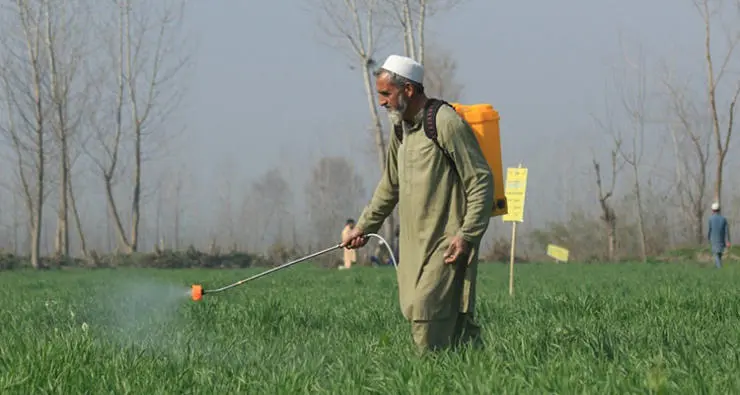
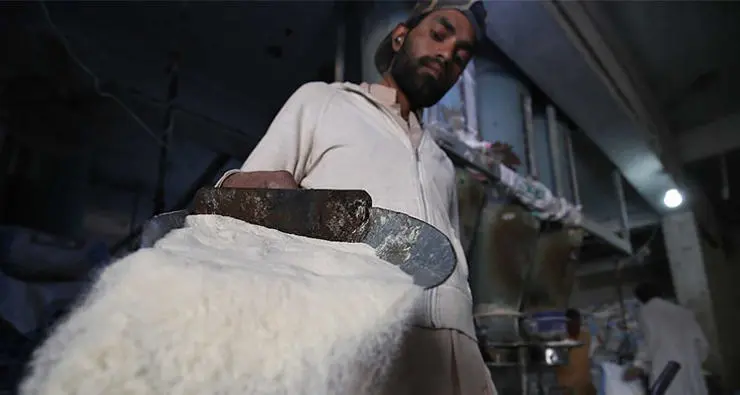
The participating households are spread over a large geographic area and some exceptionally challenging terrain. We would like to thank our field team in Peshawar for their hard work and commitment, which has been truly exceptional.
For the first six months of the trial, all the participating households have been consuming standard, non-biofortified flour. We will continue to provide this flour free of charge while the trial is on hold. This will incur considerable extra costs, further exacerbated by the recent increases in flour prices in Pakistan. However, we believe it is essential to maintain the connection and trust with our study participants. When the study resumes, we will enter the second phase of the trial, in which households are randomly assigned to an intervention group (biofortified flour) or a control group (non-biofortified flour).
The biofortified wheat for the second phase is being grown locally by smallholder farmers. Despite heavy rains in March, the crop is growing well and due to be harvested in May. We will purchase the wheat from the farmers, grind it into flour in the local mills and store the flour in our newly constructed facility. After the study is completed, this building will be converted into additional classrooms for the local school. As with all activities supported by the Abaseen Foundation, this project has benefits for the whole community.
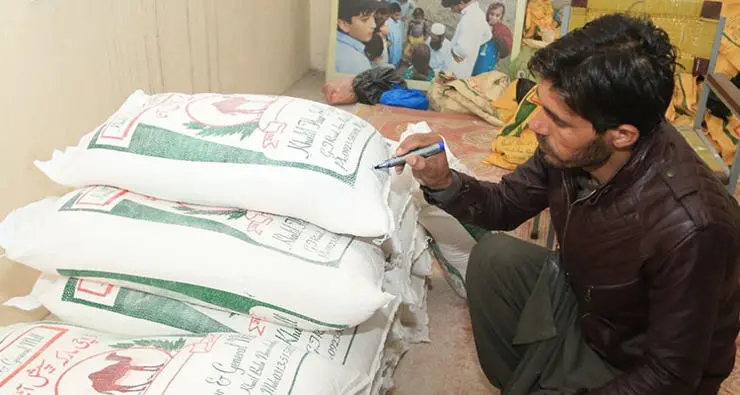
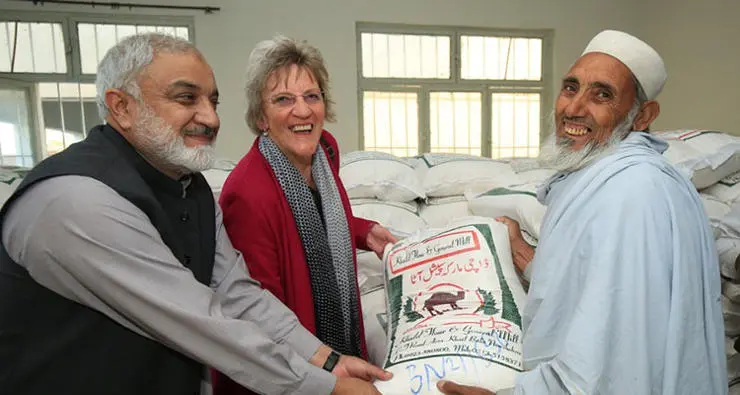
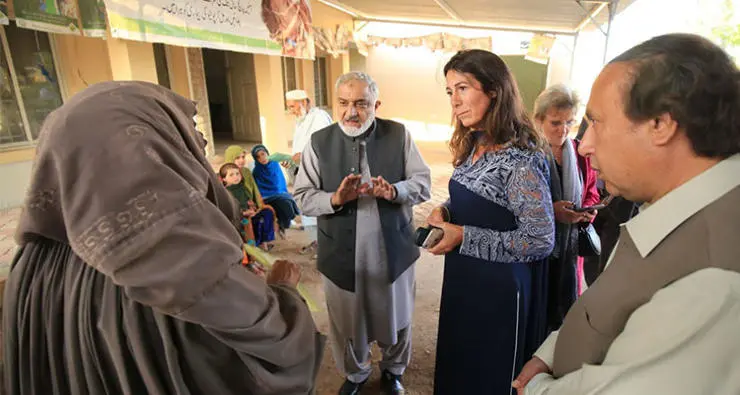
Abaseen Foundation Trustees, Helen Bingley and Nicola Lowe, visited Peshawar in early March just before international travel was restricted. Professor Nicola Lowe is also the Principal Investigator of the BIZIFED2 project. They had a busy few days visiting the project sites including the study communities, the local flour mill and the farmers who are growing the biofortified wheat for the study.
We look forward to updating you again once our fieldwork has restarted.

